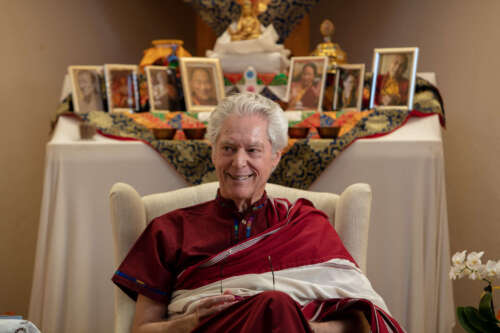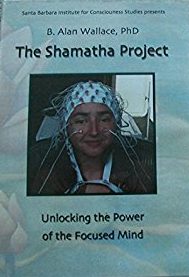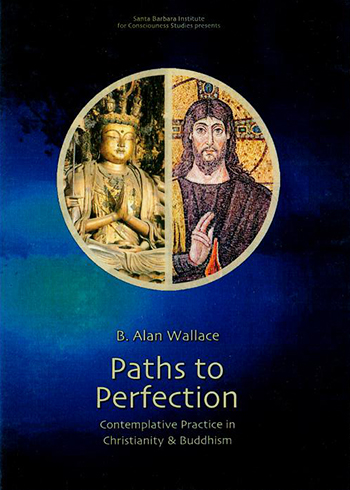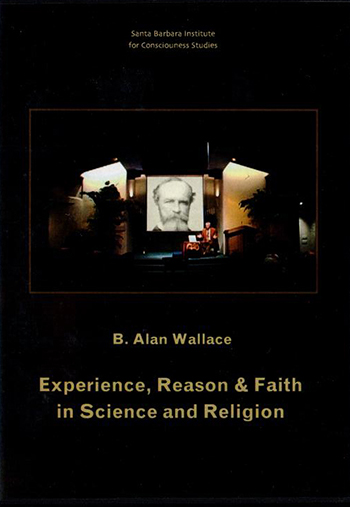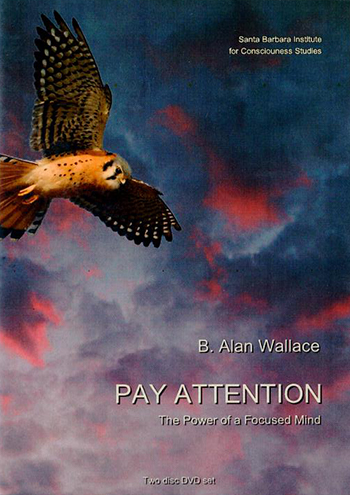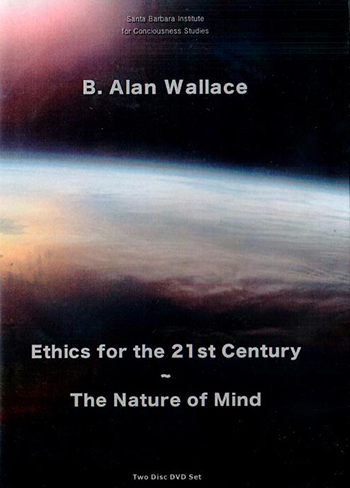Lectures
-
In this lecture, Dr. Alan Wallace will explore the benefits that emerge from cultivating an open mind and from taking a radically empirical approach to the study of consciousness, in the spirit of Galileo toward physics, Lavoisier toward chemistry, and Darwin toward biology. We may be on the brink of a true revolution in mind sciences. Recorded on March 9th, 2018 in Santa Barbara, California at the Unity Church. (DVD recording)
-
During the spring and fall of 2007, 70 people participated in two 3-month, intensive meditation retreats, during which the effects of their 8-10 hours per day of practice were meticulously studied by a team of psychologists and neuroscientists. With a wide array of psychological and physiological measurements taken toward the beginning, middle, and end of this training, this was the first longitudinal scientific study of its kind. Alan Wallace originally conceived of this project and has been working closely with this team of cognitive scientists for four years, and he served as the resident instructor for these retreats. In this lecture he will give a preliminary report of the findings of this historic study. Run time:1hr 50min
-
Jesus counseled his followers to be perfect as their Father in heaven is perfect, and for centuries, mystical union with God (understood as perfect love and omniscient wisdom) was the ideal of Christian contemplatives. Buddha counseled his followers to realize perfect freedom from suffering by irreversibly dispelling all the afflictions and obscuration of the mind. The ideals of personal liberation and perfect enlightenment have been pursued by Buddhist contemplatives over the past 2,500 years. While these two contemplative traditions appear to have had little contact throughout their long histories, they did exhibit remarkable parallels as well as differences. Ideals of perfection and the means to realize it will be explored in this lecture, with the hope that the vitality of both the Christian and Buddhist contemplative traditions may be revitalized in the modern era, which could so deeply benefit from their insights and wisdom. This DVD was recorded in April 12, 2008 at the Unity Church in Santa Barbara, California.
-
In today's world, religion is strongly tied to faith, whereas science is thought to be ruled by experience and reason, and when the two are viewed in this way, they appear to be largely incompatible with each other, or at least mutually irrelevant. Although there is some truth in this simplistic distinction, it overlooks the fact that religious people have experiences that do not easily lend themselves to scientific inquiry, and scientific thinking throughout the ages has always been strongly influenced by metaphysical beliefs and assumptions. In this lecture, Alan Wallace discusses different types of experience and the role of reason and faith in scientific and contemplative inquiry, and he proposes ways in which these two disciplines may complement each other to the mutual enhancement of both. Recorded on September 17, 2008. Program Length: 1hr 55min
-
This day-long seminar led by B. Alan Wallace explores in theory and practice three different methods for developing meditative quiescence, or shamatha: mindfulness of the breath as taught in the Theravada tradition (an effective approach to soothing the body and calming the discursive mind); "settling the mind in its natural state" (an approach pertinent to Dzogchen practice); and "shamatha without signs" - as taught by Padmasambhava. The achievement of shamatha is widely regarded in Buddhism as an indispensible foundation for the cultivation of contemplative insight (vipashyana). This seminar consists of lectures, guided meditations, and discussion periods. 2 Disc DVD set Disc 1: 2hr 34 min Disc 2: 2hr 39 min Recorded on August 30, 2008 at the Unity Church of Santa Barbara, CA.
-
In this two-part video, B. Alan Wallace covers both "Ethics for the 21st Century" and "The Nature of Mind" as background for His Holiness Dalai Lama's teaching on the same subjects at University of California, Santa Barbara. B. Alan Wallace also provides an overview of the relevance of Buddhism to the modern Western culture, historically undergirded by the often problematic precepts and assumptions of scientific materialism. Recorded in April 2009 at the Old Mission in Santa Barbara, California.
-
Understanding the nature and function of attention in Western Cognitive Sciences and Classical Mindfulness A lecture by Dr. Lobsang Rapgay, PhD. Classical Mindfulness is based on the original teachings of mindfulness that involves the integrated practice of concentration (samatha in Sanskrit) and penetrative insight (vipassana in Sanskrit). There is an increasing interest and need to go beyond current, westernized version of mindfulness, and study and apply mindfulness as an integration of concentration and insight processes and practice. The lecture will discuss and demonstrate how findings and strategies from Western cognitive psychology and neuroscience perspective can help to not only better understand the theory and practice of concentration (samatha) but more importantly learn strategies to develop sustained attention, and clinically apply it more effectively to treat anxiety and attention related disorders.

